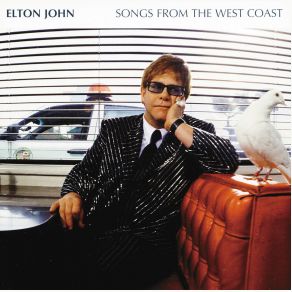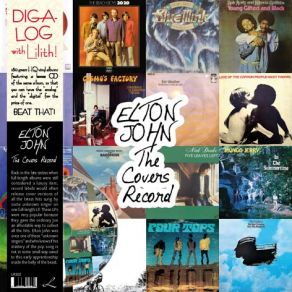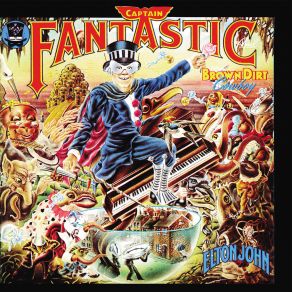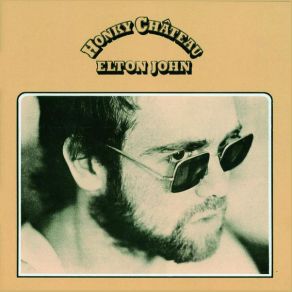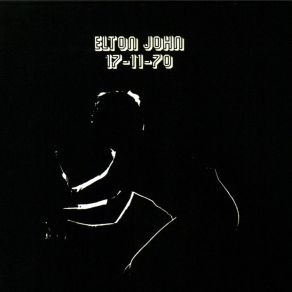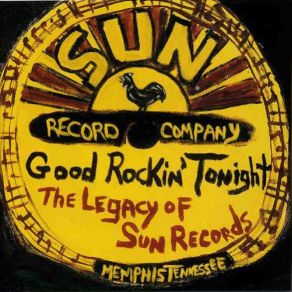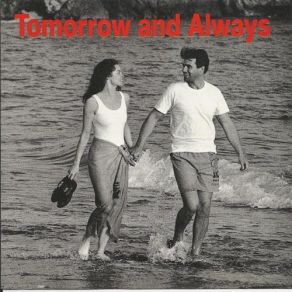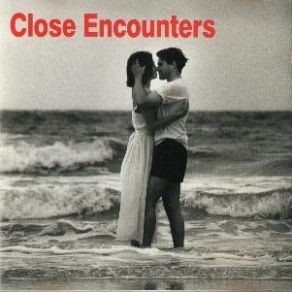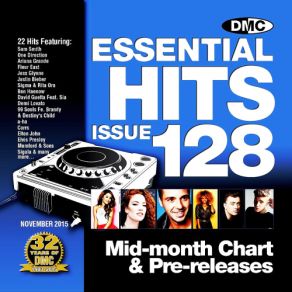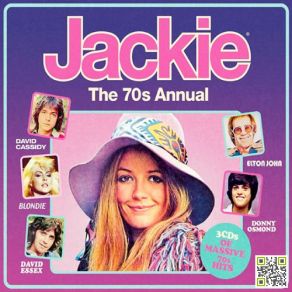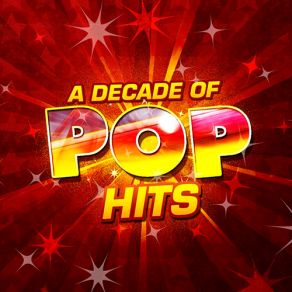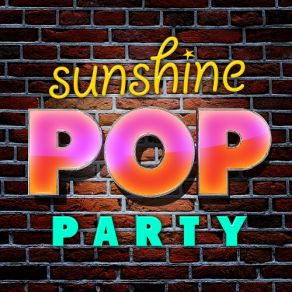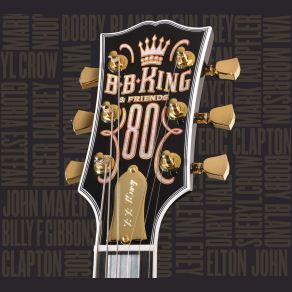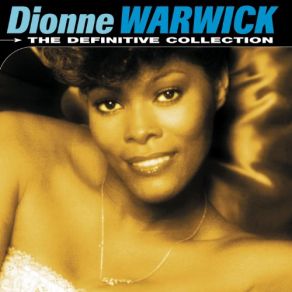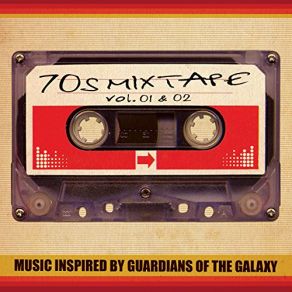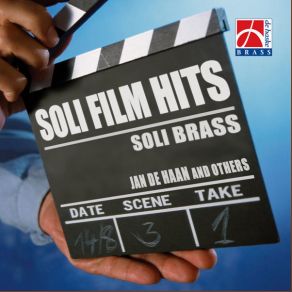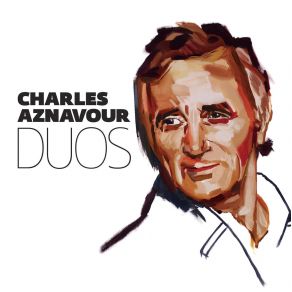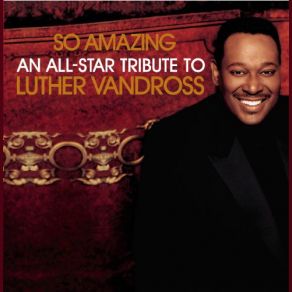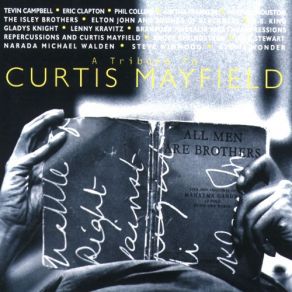Elton John
Wikimp3 information about the music of Elton John. On our website we have 70 albums and 70 collections of artist Elton John. You can find useful information and download songs of this artist. We also know that Elton John represents Pop genres.
Biography
[Edit]In terms of sales and lasting popularity, Elton John was the biggest pop superstar of the early '70s. Initially marketed as a singer/songwriter, John soon revealed he could craft Beatlesque pop and pound out rockers with equal aplomb. He could dip into soul, disco, and country, as well as classic pop balladry and even progressive rock. His versatility, combined with his effortless melodic skills, dynamic charisma, and flamboyant stage shows, made him the most popular recording artist of the '70s. Unlike many pop stars, John was able to sustain his popularity, charting a Top 40 single every single year from 1970 to 1996. During that time, he had temporary slumps in creativity and sales, as he fell out of favor with critics, had fights with his lyricist, Bernie Taupin, and battled various addictions and public scandals. But through it all, John remained a remarkably popular artist, and many of his songs — including "Your Song," "Rocket Man," "Goodbye Yellow Brick Road," and "Don't Let the Sun Go Down on Me" — became contemporary pop standards.
The son of a former Royal Air Force trumpeter, John was born Reginald Kenneth Dwight in 1947. Dwight began playing piano at the age of four, and when he was 11, he won a scholarship to the Royal Academy of Music. After studying for six years, he left school with the intention of breaking into the music business. In 1961, he joined his first band, Bluesology, and divided his time between playing with the group, giving solo concerts at a local hotel, and running errands for a London publishing house. By 1965, Bluesology was backing touring American soul and R&B musicians like Major Lance, Doris Troy, and the Bluebells. In 1966, Bluesology became Long John Baldry's supporting band and began touring cabarets throughout England. Dwight became frustrated with Baldry's control of the band and began searching for other groups to join. He failed his lead vocalist auditions for both King Crimson and Gentle Giant before responding to an advertisement by Liberty Records. Though he failed his Liberty audition, he was given a stack of lyrics left with the label courtesy of Bernie Taupin, who had also replied to the ad. Dwight wrote music for Taupin's lyrics and began corresponding with him through mail. By the time the two met six months later, Dwight had changed his name to Elton John, taking his first name from Bluesology saxophonist Elton Dean and his last from John Baldry.
John and Taupin were hired by Dick James to become staff songwriters at his fledgling DJM in 1968. The pair collaborated at a rapid rate, with Taupin submitting batches of lyrics — he often wrote a song an hour — every few weeks. John would then write music without changing the words, sometimes completing the songs in under a half-hour. Over the next two years, the duo wrote songs for pop singers like Roger Cook and Lulu. In the meantime, John recorded cover versions of current hits for budget labels to be sold in supermarkets. By the summer of 1968, he had begun recording singles for release under his own name. Usually, these songs were more rock- and radio-oriented than the tunes he and Taupin were giving to other vocalists, yet neither of his early singles for Philips, "I've Been Loving You Too Long" and "Lady Samantha," sold well. In June of 1969, he released his debut album for DJM, Empty Sky, which received fair reviews, but no sales.
For his second album, John and Taupin hired producer Gus Dudgeon and arranger Paul Buckmaster, who contributed grandiose string charts to Elton John. Released in the summer of 1970, Elton John began to make inroads in America, where it appeared on MCA's Uni subsidiary. In August, he gave his first American concert at the Troubadour in Los Angeles, which received enthusiastic reviews, as well as praise from Quincy Jones and Leon Russell. Throughout the fall, Elton John continued to climb the charts on the strength of the Top Ten single "Your Song." John followed it quickly in late 1970 with the concept album Tumbleweed Connection, which received heavy airplay on album-oriented radio in the U.S., helping it climb into the Top Ten. The rapid release of Tumbleweed Connection established a pattern of frequent releases that John maintained throughout his career. In 1971, he released the live 11-17-70 and the Friends soundtrack, before releasing Madman Across the Water late in the year. Madman Across the Water was successful, but John achieved stardom with the follow-up, 1972's Honky Chateau. Recorded with his touring band — bassist Dee Murray, drummer Nigel Olsson, and guitarist Davey Johnstone — and featuring the hit singles "Rocket Man" and "Honky Cat," Honky Chateau became his first American number one album, spending five weeks at the top of the charts.
Between 1972 and 1976, John and Taupin's hitmaking machine was virtually unstoppable. "Rocket Man" began a four-year streak of 16 Top 20 hits in a row; out of those 16 — including "Crocodile Rock," "Daniel," "Bennie and the Jets," "The Bitch Is Back," and "Philadelphia Freedom" — only one, the FM hit "Saturday Night's Alright for Fighting," failed to reach the Top Ten. Honky Chateau began a streak of seven consecutive number one albums — Don't Shoot Me I'm Only the Piano Player (1973), Goodbye Yellow Brick Road (1973), Caribou (1974), Greatest Hits (1974), Captain Fantastic and the Brown Dirt Cowboy (1975), Rock of the Westies (1975) — that all went platinum. John founded Rocket, a record label distributed by MCA, in 1973 in order to sign and produce acts like Neil Sedaka and Kiki Dee. John didn't become a Rocket recording artist himself, choosing to stay with MCA for a record-breaking eight-million-dollar contract in 1974. Later in 1974, he played and sang on John Lennon's number one comeback single "Whatever Gets You Through the Night," and he persuaded Lennon to join him on-stage at Madison Square Garden on Thanksgiving Day 1974; it would prove to be Lennon's last live performance. The following year, Captain Fantastic became John's first album to enter the American charts at number one. After its release, he revamped his band, which now featured Johnstone, Quaye, Roger Pope, Ray Cooper, and bassist Kenny Passarelli; Rock of the Westies was the first album to feature this lineup.
Throughout the mid-'70s, John's concerts were enormously popular, as were his singles and albums, and he continued to record and perform at a rapid pace until 1976. That year, he revealed in an interview in Rolling Stone that he was bisexual; he would later admit that the confession was a compromise, since he was afraid to reveal that he was homosexual. Many fans reacted negatively to John's bisexuality, and his audience began to shrink somewhat in the late '70s. The decline in his record sales was also due to his exhaustion. After 1976, John cut his performance schedule drastically, announcing that he was retiring from live performances in 1977 and started recording only one album a year. His relationship with Taupin became strained following the release of 1976's double album Blue Moves, and the lyricist began working with other musicians. John returned in 1978 with A Single Man, which was written with Gary Osborne; the record produced no Top 20 singles. That year, he returned to live performances, first by jamming at the Live Stiffs package tour, then by launching a comeback tour in 1979 accompanied only by percussionist Ray Cooper. "Mama Can't Buy You Love," a song he recorded with Philly soul producer Thom Bell in 1977, returned him to the Top Ten in 1979, but that year's Victim of Love was a commercial disappointment.
John reunited with Taupin for 1980's 21 at 33, which featured the Top Ten single "Little Jeannie." Over the next three years, John remained a popular concert artist, but his singles failed to break the Top Ten, even if they reached the Top 40. In 1981, he signed with Geffen Records and his second album, Jump Up!, became a gold album on the strength of "Blue Eyes" and "Empty Garden (Hey Hey Johnny)," his tribute to John Lennon. But it was 1983's Too Low for Zero that began his last great streak of hit singles, with the MTV hit "I'm Still Standing" and the Top Ten single "I Guess That's Why They Call It the Blues." Throughout the rest of the '80s, John's albums would consistently go gold, and they always generated at least one Top 40 single; frequently, they featured Top Ten singles like "Sad Songs (Say So Much)" (1984), "Nikita" (1986), "Candle in the Wind" (1987), and "I Don't Want to Go on with You Like That" (1988). While his career continued to be successful, his personal life was in turmoil. Since the mid-'70s, he had been addicted to cocaine and alcohol, and the situation only worsened during the '80s. In a surprise move, he married engineer Renate Blauel in 1984; the couple stayed married for four years, although John later admitted he realized he was homosexual before his marriage. In 1986, he underwent throat surgery while on tour, but even after he successfully recovered, he continued to abuse cocaine and alcohol.
Following a record-breaking five-date stint at Madison Square Garden in 1988, John auctioned off all of his theatrical costumes, thousands of pieces of memorabilia, and his extensive record collection through Sotheby's. The auction was a symbolic turning point. Over the next two years, John battled both his drug addiction and bulimia, undergoing hair replacement surgery at the same time. By 1991 he was sober, and the following year he established the Elton John AIDS Foundation; he also announced that he would donate all royalties from his single sales to AIDS research.
In 1992, John returned to active recording with The One. Peaking at number eight on the U.S. charts and going double platinum, the album became his most successful record since Blue Moves and sparked a career renaissance for John. He and Taupin signed a record-breaking publishing deal with Warner/Chappell Music in 1992 for an estimated 39 million dollars. In 1994, John collaborated with lyricist Tim Rice on songs for Disney's animated feature The Lion King. One of their collaborations, "Can You Feel the Love Tonight," won the Academy Award for Best Original Song, as well as the Grammy for Best Male Pop Vocal Performance. John's 1995 album Made in England continued his comeback, peaking at number three on the U.K. charts and number 13 in the U.S.; in America, the album went platinum. The 1997 follow-up, The Big Picture, delivered more of the same well-crafted pop, made the Top Ten, and produced a hit in "Something About the Way You Look Tonight." However, its success was overshadowed by John's response to the tragic death of Princess Diana — he re-recorded "Candle in the Wind" (originally a eulogy for Marilyn Monroe) as a tribute to his slain friend, with Taupin adapting the lyrics for what was planned as the B-side of "Something About the Way You Look Tonight."
With the profits earmarked for Diana's favorite charities, and with a debut performance at Diana's funeral, "Candle in the Wind 1997" became the fastest-selling hit of all time in both Britain and the U.S. upon the single's release, easily debuting at number one on both sides of the Atlantic; with first-week sales of over three million copies in the U.S. alone and 14 weeks in the top spot, it was John's biggest hit ever. For his next project, John reunited with Lion King collaborator Tim Rice to write songs for Disney's Broadway musical adaptation of the story of Aida; an album of their efforts featuring a who's who of contemporary pop musicians was released in early 1999, going gold by the end of the year. In late 2000, John landed a TV special with CBS, performing a selection of his greatest hits at Madison Square Garden; a companion album drawn from those performances, One Night Only, was issued shortly before the special aired. Released in 2001, Songs from the West Coast was a return to form for John, who found critical success for the first time since the '80s. However, it wasn't until 2004's popular Peachtree Road album that he managed to match that success commercially. In 2006, John and Taupin released The Captain & the Kid, a sequel to 1975's Captain Fantastic and the Brown Dirt Cowboy. John busied himself with stage work and a Vegas show before he unexpectedly recorded a duet album with Leon Russell, releasing the T-Bone Burnett-produced The Union in the fall of 2010.
The Union revived Russell's career and the duo supported the record with a limited tour. John settled into another Vegas stint in 2011, signing a contract with Caesars Palace to deliver a show called The Million Dollar Piano over the next three years. Despite this long-term commitment, Elton pursued other projects: he published an autobiography called Love Is the Cure in the summer of 2012 and around the same time, the Australian dance duo Pnau reworked many of his classic '70s recordings on the Good Morning to the Night album. He also completed another collection of new songs called The Diving Board; the T-Bone Burnett-produced album appeared in September 2013.
Title: Good Morning To The Night (Pnau's Rock The Games Extended Mix) - Single
Artist: Pnau, Elton John
Genre: Electronica, Rock, Punk Rock, Dancefloor, Dance Pop
Title: In The Name Of You (Single)
Artist: Elton John
Genre: Tech House, Hip Hop/R&B, Rock, Pop, Songwriter/Lyricist, Classical
Title: One Night Only
Artist: Elton John
Genre: Rock, Glam Rock, Punk Rock, Pop, Songwriter/Lyricist
Title: Greatest Hits 1970 - 2002 (CD2)
Artist: Elton John
Genre: Electronica, Rock, Disco, Pop, Pop Rock
Title: Good Morning to the Night
Artist: Pnau, Elton John
Genre: Electronica, Rock, Punk Rock, Dancefloor, Dance Pop
Title: Good Morning to the Night (Deluxe Version)
Artist: Pnau, Elton John
Genre: Electronica, Rock, Dancefloor, Dance Pop
Title: To Be Continued (Box Set)
Artist: Elton John
Genre: Rock, Glam Rock, Hard Rock, Rock & Roll, Punk Rock, Heavy Metal, Pop, Songwriter/Lyricist
Title: Tumbleweed Connection (Deluxe Edition)
Artist: Elton John
Genre: Rock, Rock & Roll, Punk Rock, Pop, Songwriter/Lyricist
Title: The Captain & The Kid (Bonus Tracks)
Artist: Elton John
Genre: Rock, Pop, Alternative, Songwriter/Lyricist
Title: Captain Fantastic and the Brown Dirt Cowboy
Artist: Elton John
Genre: Rock, Rock & Roll, Punk Rock, Pop, Songwriter/Lyricist
Title: Elton John's Greatest Hits, Vol. 2
Artist: Elton John
Genre: Rock, Rock & Roll, Pop, Songwriter/Lyricist
Title: Candle In the Wind 1997 / Something About the Way You Look Tonight - EP
Artist: Elton John
Genre: Rock, Pop, Songwriter/Lyricist
Title: Tumbleweed Connection (Remastered)
Artist: Elton John
Genre: Rock, Rock & Roll, Punk Rock, Pop, Songwriter/Lyricist
Title: Goodbye Yellow Brick Road (Remastered)
Artist: Elton John
Genre: Rock, Pop, Contemporary Folk
Title: Honky Château / Honky Chateau
Artist: Elton John
Genre: Rock, Rock & Roll, Punk Rock, Pop, Songwriter/Lyricist
Collections
Title: Jackie Holiday Special (CD1)
Genre: Dancefloor, Disco, Pop, Dance Pop
Title: Billboard Presents - Summer Hits 2015 (CD2)
Genre: House, Hip Hop/R&B, Dancefloor, Pop, Dance Pop
Title: Latest & Greatest Kids Party Turn It Up (CD2)
Genre: Dancefloor, Pop, Dance Pop
Title: Absolute Hits Of The 80's
Title: Kuschelrock Vol. 29 (CD3)
Genre: Blues, Rock, World Music, Folk
Title: The Greatest Singer-Songwriter Classics (CD1)
Genre: Pop
Title: Billboard Presents - Autumn Hits 2015 (CD2)
Genre: Dancefloor, Pop, Pop Rock, Dance Pop
Title: Good Rockin' Tonight: The Legacy Of Sun Records
Genre: Rock, Rockabilly
Title: Now Thats What I Call A Singer (CD1)
Genre: Pop
Title: My Favourite Hits Of 1975 (CD3)
Genre: Rock, Hard Rock, Heavy Metal, Disco, Pop, Pop Rock, Funk
Title: My Favourite Hits Of 1975 (CD10)
Genre: Rock, Glam Rock, Hard Rock, Progressive Rock, Rock & Roll, Heavy Metal, World Music, Disco, Pop, Pop Rock, Funk, Folk
Title: My Favourite Hits Of 1976 (CD3)
Genre: Blues, Rock, Blues Rock, Hard Rock, New Wave, Heavy Metal, Pop, Pop Rock
Title: My Favourite Hits Of 1972 (CD8)
Genre: Rock, Blues Rock, Glam Rock, Hard Rock, Progressive Rock, Heavy Metal, Pop, Pop Rock
Title: My Favourite Hits Of 1973 (CD4)
Genre: Soul, Rock, Blues Rock, Progressive Rock, Heavy Metal, Progressive Metal, Pop, Pop Rock, Acoustic
Title: My Favourite Hits Of 1973 (CD8)
Genre: Rock, Blues Rock, Hard Rock, Heavy Metal, Pop, Pop Rock, Acoustic
Title: My Favourite Hits Of 1972 (CD1)
Genre: Soul, Soul Jazz, Rock, Blues Rock, Funk Rock, Glam Rock, Hard Rock, Psychedelic Rock, Heavy Metal, Pop, Pop Rock, Synth Pop
Title: My Favourite Hits Of 1988 (CD13)
Genre: New Age, Electronica, Euro House, Rock, Reggae, Disco, Pop, Synth Pop
Title: My Favourite Hits Of 1989 (CD05)
Genre: Rock, Blues Rock, Hard Rock, Heavy Metal, Disco, Pop, Pop Rock, Synth Pop
Title: My Favourite Hits Of 1985 (CD02)
Genre: Electronica, Disco, Eurodisco, Pop, Pop Rock, Synth Pop
Title: The Blacklist - Season 2 (Original Soundtrack) (CD2)
Genre: Electronica, Blues, Rock, Indie Rock, Metal, Tango, World Music, Country, Pop, Alternative, Theatre/Soundtrack, Indie, Classical, J-Pop, Folk
Title: The Emotion Collection (Reflections) (CD1)
Genre: Pop
Title: The Emotion Collection (From The Heart) (CD1)
Genre: Pop
Title: The Emotion Collection (Tomorrow And Always) (CD1)
Genre: Pop
Title: The Emotion Collection (Christmas) (CD1)
Genre: Pop
Title: The Emotion Collection (Without You) (CD1)
Genre: Pop
Title: The Emotion Collection (Close Encounters) (CD2)
Genre: Pop
Title: Tammy Wynette Remembered
Genre: Country
Title: 70s Music Explosion One Hit Wonders (CD2)
Genre: Soul, Psychedelic Rock, Disco, Pop
Title: NOW That’s What I Call Christmas 2015 (CD1)
Genre: Dancefloor, Disco, Pop, Dance Pop, Traditional Pop Music
Title: Golden World Songs 70s (CD1)
Genre: Dancefloor, Pop, Dance Pop
Title: Golden World Songs 70s (CD2)
Genre: Dancefloor, Pop, Dance Pop
Title: Kids Party The Collection (CD1)
Genre: Hip Hop/R&B, Soul, Pop, Synth Pop, Indie
Title: 70s City Started Hits 2015 (CD1)
Genre: Soul, Jazz, Vocal Jazz, Rock & Roll, Disco, Pop
Title: Party Power Pack Vol. 3
Genre: Pop
Title: The Rock Collection: Night Rock
Genre: Rock
Title: Die Hit Giganten Best Of Rock'n'roll (CD2)
Genre: Hip Hop/R&B, Rock & Roll, Pop, Pop Rock
Title: Billboard Pop Busters Part 1
Genre: Hip Hop/R&B, Soul, Rock, Pop
Title: The Playlist - Christmas Hits 2015
Genre: Vocal Jazz, Rock, Pop
Title: Jackie 70s Annual (CD1)
Title: Jackie 70s Annual (CD3)
Title: The Best Days Of Christmas (CD1)
Genre: Gospel, Vocal Jazz, Country
Title: Pop Hits Party - Radio Time (CD2)
Genre: Hip Hop/R&B, Soul, Jazz, Country, Pop, Smooth Jazz
Title: Support Pop Tracks Todays Hits 2015 (CD3)
Genre: Hip Hop/R&B, Hard Rock, Heavy Metal, Synth Pop, Alternative
Title: Support Pop Tracks Todays Hits 2015 (CD4)
Genre: Hip Hop/R&B, Hard Rock, Heavy Metal, Synth Pop, Alternative
Title: Kuschelrock 10 (CD1)
Genre: Pop
Title: Now Xmas 2015
Genre: Pop
Title: World Romantic Songs (CD2)
Genre: Rock, Dancefloor, Pop, Dance Pop
Title: Kuschelrock 29 CD3
Title: I Love 80s Vol. 1 (CD1)
Genre: Hip Hop/R&B
Title: World Sunshine Pop Party (CD2)
Genre: Electronica, Gospel, Country, Pop Rock, Indie
Title: Mastermix DJ Beats Love
Title: Pop Breathe Music Hits Today (CD2)
Genre: Hip Hop/R&B, Soul, Rock, Pop Rock, Funk
Title: 100x Winter 2015 (CD04)
Genre: Club/Dance, Synth Pop, Indie, Classical
Featuring albums
Title: Boogie Oogie - Internacional
Artist: Vários Artistas / Varios Artistas
Genre: Theatre/Soundtrack
Title: Knew You Were Waiting: The Best of Aretha Franklin 1980-1998
Artist: Aretha Franklin
Genre: Hip Hop/R&B, Soul, Rock, Punk Rock
Title: Rhythm of the Pride Lands
Artist: Lebo M
Genre: Hip Hop/R&B, Soul, Jazz, Kids, Theatre/Soundtrack
Title: The Platinum Collection (Greatest Hits I II & III)
Artist: Queen
Title: Gentle Dreams: The Best of Julian Lloyd Webber
Artist: Julian Lloyd Webber
Genre: Theatre/Soundtrack
Title: The Essential Shawn Mullins
Artist: Shawn Mullins
Genre: Rock, Pop, Alternative, Songwriter/Lyricist
Title: The Essential NOW That's What I Call Christmas
Artist: Various Artists
Genre: Traditional Pop Music
Title: 20th Century Masters: The Millennium Collection: Best Of The '70s
Artist: Various Artists
Genre: Pop
Title: 70's Mixtape Vol. 1 & 2 - Music Inspired by Guardians of the Galaxy
Artist: Various Artists
Genre: Rock
Title: Curtain Call - The Hits (Deluxe Version)
Artist: Eminem
Genre: Hip Hop/R&B, Rap, Rock, Punk Rock
Title: Party Groove: Fortitude Weekend (Continuous Mix)
Artist: Roland Belmares
Genre: Electronica, Dancefloor, Dance Pop
Title: The Best of Leon Russell
Artist: Leon Russell
Genre: Rock, Blues Rock, Pop, Songwriter/Lyricist
Title: Almost Famous (Music From The Motion Picture)
Artist: Various Artists
Genre: Theatre/Soundtrack
Title: American Hustle (Original Motion Picture Soundtrack)
Artist: Various
Genre: Theatre/Soundtrack
Title: Walt Disney Records The Legacy Collection: The Lion King
Artist: Various Artists
Genre: Theatre/Soundtrack
Title: Elizabethtown - Music From The Motion Picture
Artist: Original Soundtrack
Genre: Theatre/Soundtrack
Title: Rock Of Ages - Hard Rock Hits Of The '80s
Artist: Various Artists
Genre: Rock, Hard Rock, Metal, Heavy Metal
Title: Born to Boogie - The Soundtrack Album
Artist: Marc Bolan T-Rex
Genre: Rock, Alternative Rock, Hard Rock, Punk, Hardcore Punk, Metal, Pop
Title: Temptation: Music From The Showtime Series Californication
Artist: Various Artists
Genre: Theatre/Soundtrack










